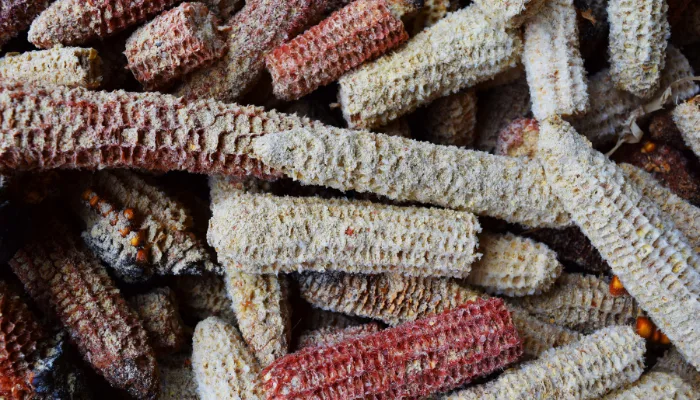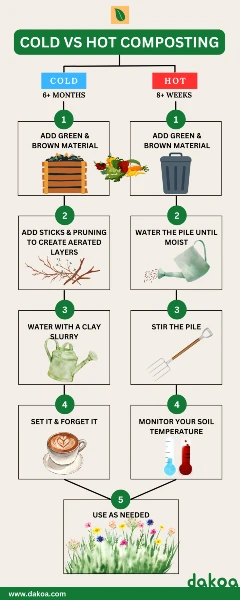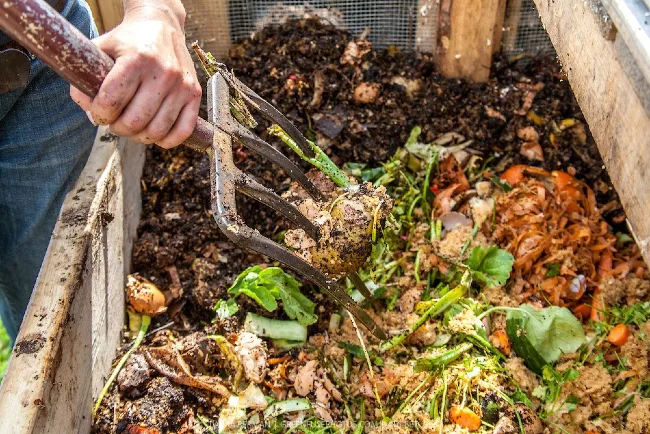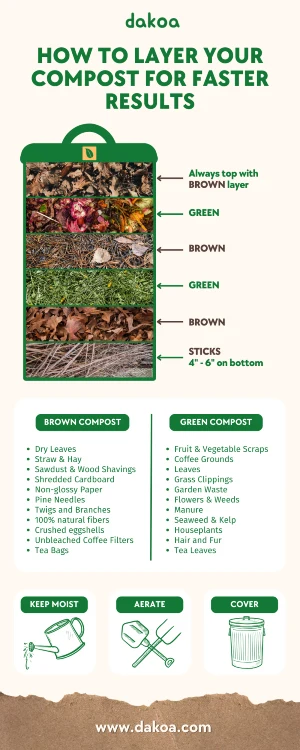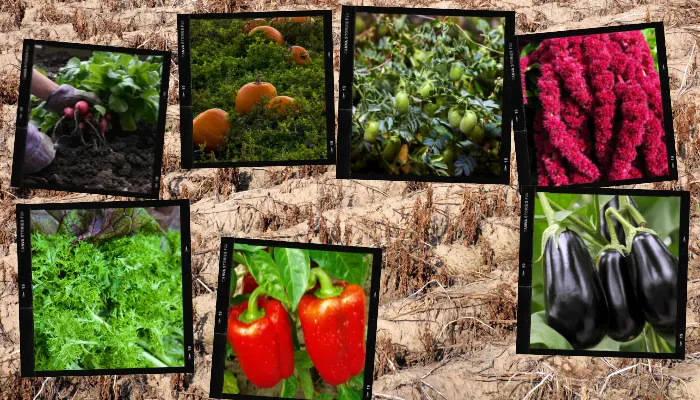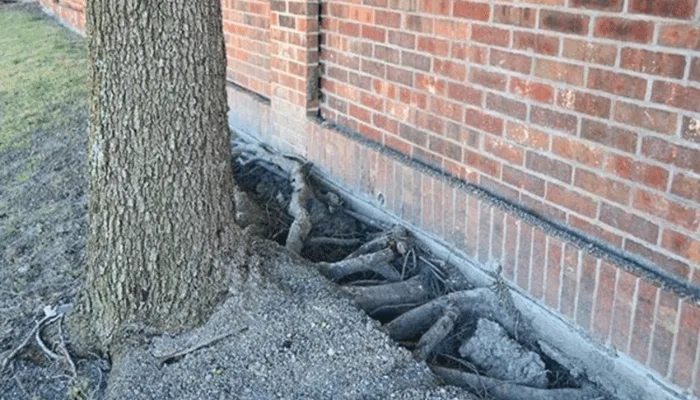Over 90 million acres of land in the United States is dedicated to corn production, making the crop a nearly $100 billion industry. As impressive as those numbers are, it results in substantial organic waste.
So please don’t toss those corn cobs into the trash! They add vital nutrients to your compost bin and help with aeration and moisture retention.
Why Compost Corn Cobs?
Composting corn cobs benefits both your garden and the environment. These cobs retain heat and provide essential air pockets, enhancing the decomposition process. When added to compost, they improve soil structure and water retention, making your garden soil more fertile and resilient. Corn compost is an eco-friendly way to recycle corn waste, contributing to a sustainable process and helping combat climate change.
How to Prepare Corn Cobs for Composting
To maximize the benefits, cut your corn cobs into smaller pieces. This simple step speeds up their decomposition process. You can easily do this with a knife, aiming for 1-inch slices.
If your corn cobs are dry, moisten them before adding them to the compost pile. This ensures they break down faster and integrate well with other compost materials.
Green husks from fresh corn should be considered nitrogen-rich green compost ingredients, while brown husks from dried corn should be used as carbon-rich brown compost ingredients.
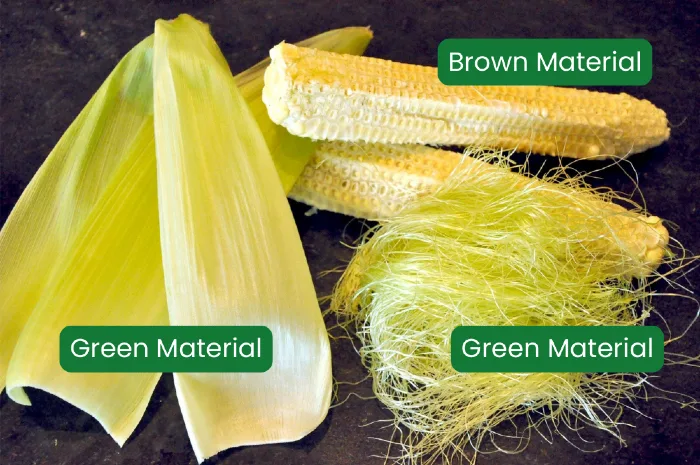
Optimal Composting Conditions for Corn Cobs
Maintaining the right carbon-to-nitrogen ratio is crucial. Aim for a 4:1 ratio, balancing green materials like fresh vegetable scraps with brown materials such as dried corn husks.
Layer your compost materials to create a conducive environment for decomposition. Getting this right also helps control unpleasant odors from your compost pile!
Regularly turning your compost heap promotes aeration, crucial for the composting process. Use a garden fork to turn the pile and ensure good air circulation.
Hot piles for composting corn should go as high as 90 to 140 degrees Fahrenheit. This temperature range indicates microbial activity within the pile, “cooking” your organic materials to break down. Regularly check the temperature with a long-stemmed backyard thermometer to maintain optimal conditions. High microbial activity ensures a successful composting process, breaking down corn cobs and other organic matter efficiently.
Composting Methods for Cobs (You've Got Options)
Hot Composting
This method is great for those who want quick results. Keep your compost pile at a temperature between 90 and 140 degrees Fahrenheit. The heat helps break down the corn cobs rapidly. Layer green materials like coffee grounds and fresh corn husks with carbon-rich materials such as brown husks and shredded paper.
Cold Composting
This method is slower but easier and requires less maintenance. Simply layer your organic waste, including corn cobs, and let nature take its course. Cold composting can take a long time, but it requires minimal effort and is perfect for those who prefer a hands-off approach.
Vermicomposting
Corn cobs are excellent food for worms. Cut them into small pieces and add them gradually to your worm bin. Worms will break them down into nutrient-rich compost. This method is particularly useful if you have limited space and want to compost kitchen scraps efficiently.
Bokashi Composting
This method involves fermenting food waste, including corn cobs, using Bokashi bran. It’s a great way to compost indoors and process a variety of organic materials. Bokashi composting is effective in handling food scraps that might not decompose easily in traditional compost heaps.
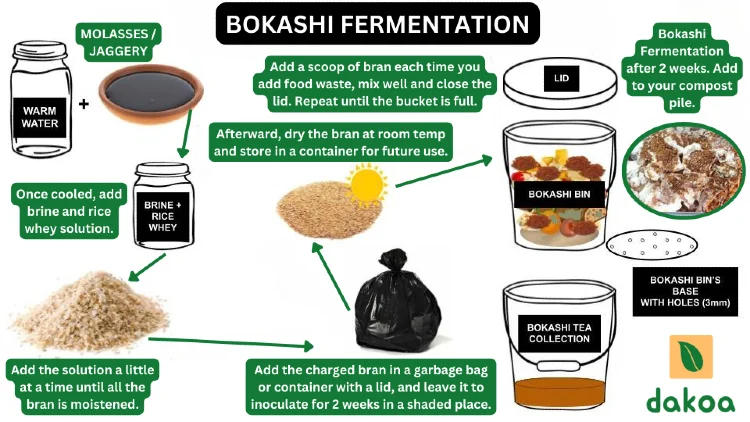
Potential Issues and Solutions
Pest Problems
Corn waste can attract pests if not properly managed. Bury corn cobs deep in the compost pile to minimize this risk. Cover open compost piles with a metal sheet or use sealed compost bins. This keeps pests out and helps maintain a balanced compost pile.
Odor Management
Unpleasant odors can occur if the compost pile becomes too wet. Ensure balanced moisture levels and regular aeration. If necessary, add dry brown materials like shredded paper or sawdust to absorb excess moisture. Properly managed compost shouldn’t produce bad smells.
How Long Does Corn Take to Compost?
Depending on your compost pile’s conditions and corn preparation, small pieces of corn cobs can break down in 3 to 4 months. Whole corn cobs decompose from six months to a year under optimal composting conditions. Shredded corn husks (fresh or dry) decompose in three months when included at the center of a hot compost pile. The decomposition rate depends on how well the compost pile is managed and the composting conditions.
Impact on Decomposition
Corn waste aids decomposition by supplying vital elements to composting microorganisms. Additionally, the pockets in corn cobs and stalks trap air, enhancing the efficiency of your compost pile in breaking down organic matter.
Carbon from corn cobs and dried husks serves as an energy source for composting microorganisms. In contrast, fresh corn husks’ nitrogen content further boosts microbial growth, yielding a nutrient-rich compost faster.
Temperature and Moisture
The air pockets in corn cobs and stalks help your bin or pile retain heat. During the composting activity, hot piles should be between 90 and 140 degrees Fahrenheit. Turning your pile and following a 4:1 carbon-to-nitrogen ratio will also aid in maintaining this optimal range.
When it comes to decomposition, cooked corn breaks down faster than dried corn because of its moisture content. If your compost bin or pile gets too wet, consider adding small pieces of dry corn husk, which are excellent at absorbing excess liquids.
Alternative Uses for Corn Cobs
If composting isn’t an option, corn cobs have several other uses:
- Mulching: Use corn cobs as mulch around your plants to retain soil moisture and prevent weed growth. They also help improve soil structure and add organic matter.
- Animal Feed: Corn cobs can be fed to livestock like chickens and goats. Local farmers often use corn stock and cobs as a resource for animal feed.
- Industrial Uses: Companies are turning corn waste into sustainable products like bioplastics and peat moss substitutes. For example, Dow is collaborating with New Energy Blue and Cormo USA on both bioplastic production and various substitutes from corn waste. If possible, support any company that’s invested in an industrial composting process to sustainably manage agricultural waste.
Disposal Options for Corn
If none of the options are available, properly segregate your corn wastes and dispose of them in an appropriate garbage bin. Avoid using plastic bags to dispose of organic waste, they’re not biodegradable.
Frequently Asked Questions
Can I compost corn husks and stalks?
Yes, both husks and stalks can be composted. Cut them into smaller pieces and moisten if dry. Fresh green husks and corn silks are rich in nitrogen and are great for composting. Brown husks and dried stalks provide carbon and help balance the compost mix.
How long does it take for corn cobs to compost?
Small pieces of corn cobs can decompose in 3 to 4 months. Whole cobs may take six months to a year. The decomposition rate depends on how well the compost pile is managed and the composting conditions.
Does corn add any nutrients to compost?
Yes, corn compost adds essential nutrients like nitrogen, phosphorus, and potassium, which support soil health and plant growth. These nutrients are vital for developing corn and other plants in your garden.
Is it a good idea to compost corn cobs?
Absolutely. Composting corn cobs enriches your soil, improves soil structure, and helps retain moisture. It’s a natural process that turns kitchen scraps into valuable compost for your garden.
Conclusion
Save those cobs for your compost heap the next time you toss some corn on the grill for dinner! Food waste is such a big problem these days, so every small thing we can do to manage food waste in an eco-friendly way will contribute to a sustainable future.
Small things add up!







